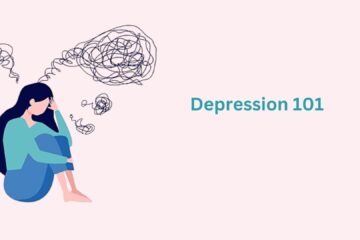Health anxiety, also known as illness anxiety disorder or hypochondria, is a condition characterized by excessive worry and fear about having a serious medical condition. Individuals with health anxiety often misinterpret normal bodily sensations as signs of a severe illness, leading to constant fear and distress. In this article, we will explore the symptoms of health anxiety and the available treatment options.
What is Health Anxiety?
Health anxiety is a mental health condition in which individuals have an excessive preoccupation with their health. They constantly worry about having a serious illness, despite having little or no medical evidence to support their concerns. This excessive worry can significantly affect their daily lives, causing distress, impairment, and interference with their ability to carry out normal activities.
Symptoms of Health Anxiety:
1. Health Obsession:
Individuals with health anxiety are preoccupied with their health and constantly think about potential illness. They may obsessively monitor their body for any signs or symptoms, leading to heightened anxiety.
2. Overreacting to Minor Symptoms:
Even minor bodily sensations or changes can trigger a heightened fear of having a serious illness. For example, a simple headache may lead to thoughts of a brain tumor, causing extreme distress.
3. Easily Alarmed about Health:
Individuals with health anxiety are easily alarmed by health-related information or news. They may excessively worry about medical conditions they hear or read about, even if they have no personal risk factors.
4. Reassurance Resistance:
Despite reassurances from healthcare professionals or negative medical tests, individuals with health anxiety find it difficult to believe that they are not seriously ill. They may seek multiple opinions or constantly request medical tests to alleviate their fears temporarily.
5. Genetic Health Anxiety:
There is evidence to suggest that health anxiety may have a genetic component. Individuals with a family history of anxiety or mental health disorders may be more prone to developing health anxiety.
6. Functional Impairment from Worry:
Health anxiety can significantly impact an individual’s daily functioning. They may avoid activities or situations that they perceive as a potential risk to their health, leading to social withdrawal and functional impairment.
7. Repetitive Body Checking:
Individuals with health anxiety may engage in repetitive body checking behaviors, such as constantly feeling for lumps or monitoring their vital signs. These behaviors provide temporary relief from anxiety but can perpetuate the cycle of worry.
8. Compulsive Medical Behavior:
Some individuals with health anxiety may engage in compulsive medical behaviors, such as constantly visiting doctors, seeking unnecessary medical tests, or self-diagnosing using online resources.
9. Avoidance Due to Health Fear:
The fear of illness can lead individuals with health anxiety to avoid places or situations they associate with a higher risk of contracting a disease. This can impact their social life, work, and overall quality of life.
10. Excessive Health Discussions:
Individuals with health anxiety may constantly talk about their health concerns with family, friends, or online communities. This excessive discussion can reinforce their fears and perpetuate their anxiety.
11. Internet Searches for Health Answers:
The internet can be both a blessing and a curse for individuals with health anxiety. While it provides access to vast medical information, it can also fuel unnecessary worry and reinforce irrational health fears.
Treatment of Health Anxiety:
1. Medication:
In some cases, medication may be prescribed to manage the symptoms of health anxiety. Antidepressants or anti-anxiety medications can help reduce excessive worrying and anxiety.
2. Therapy:
Cognitive-behavioral therapy (CBT) is the most effective form of therapy for health anxiety. It focuses on identifying and challenging irrational thoughts and beliefs, and developing healthier coping strategies. Exposure and response prevention (ERP) therapy can also be effective in reducing avoidance and compulsive behaviors.
3. Self-care:
Engaging in self-care activities such as regular exercise, practicing relaxation techniques like deep breathing or meditation, and maintaining a healthy lifestyle can help reduce anxiety symptoms.
4. Specialist to Consult:
If you suspect you may have health anxiety, it is essential to consult with a mental health professional. They can provide a proper diagnosis, develop an individualized treatment plan, and offer support throughout your recovery journey.
Self Help Techniques For Health Anxiety
1. Understanding health anxiety:
This section provides an overview of health anxiety, also known as illness anxiety disorder or hypochondria. It explains the excessive worry and preoccupation with having a serious medical condition, despite little or no evidence of illness. Understanding the nature of health anxiety is crucial for implementing effective self-help techniques.
2. Identifying triggers and patterns:
In this section, individuals are encouraged to identify triggers and patterns that contribute to their health anxiety. This may involve keeping a journal to track anxious thoughts, physical sensations, and situations that intensify anxiety. Recognizing these triggers helps individuals gain insight into their anxiety and develop strategies to manage it.
3. Cognitive behavioral techniques:
Cognitive behavioral techniques aim to change negative thought patterns and beliefs associated with health anxiety. This section provides practical strategies such as challenging irrational thoughts, reframing catastrophic thinking, and replacing anxious thoughts with more realistic and positive ones. It also explores techniques like thought stopping, cognitive restructuring, and mindfulness-based approaches.
4. Relaxation and stress management:
This section focuses on various relaxation and stress management techniques that can alleviate health anxiety symptoms. It includes strategies such as deep breathing exercises, progressive muscle relaxation, guided imagery, meditation, and yoga. These techniques help individuals to calm their mind, reduce physical tension, and promote a sense of overall well-being.
5. Seeking support and professional help:
While self-help techniques can be beneficial, it is essential to recognize when additional support is needed. This section emphasizes the importance of seeking support from friends, family, or support groups who can provide empathy, understanding, and encouragement. It also encourages individuals to consider professional help, such as therapy or counseling, which can provide specialized guidance and treatment for health anxiety.
Conclusion:
Health anxiety can be a debilitating condition that significantly impacts an individual’s quality of life. Recognizing the symptoms and seeking appropriate treatment is crucial for managing this condition effectively. With the right combination of medication, therapy, self-care, and support, individuals with health anxiety can regain control of their lives and find relief from their fears.
Frequently Asked Questions
Q: What is health anxiety?
A: Health anxiety, also known as illness anxiety disorder or hypochondria, is a condition characterized by excessive worry and fear about having a serious medical condition. Individuals with health anxiety often misinterpret normal bodily sensations as signs of illness and may constantly seek reassurance or medical attention.
Q: What are the common symptoms of health anxiety?
A: Common symptoms of health anxiety include excessive worrying about health, frequent checking of the body for signs of illness, intense fear of having a serious disease, constantly seeking medical advice or reassurance, excessive use of online health resources, experiencing physical symptoms related to anxiety (e.g., rapid heartbeat, sweating), and avoiding situations or activities that may trigger health-related concerns.
Q: How does health anxiety differ from normal concerns about health?
A: Health anxiety differs from normal concerns about health in that it involves excessive worry and fear that is disproportionate to the actual likelihood of having a serious medical condition. While it is normal to be concerned about one’s health, health anxiety causes significant distress, interferes with daily functioning, and may lead to excessive medical testing and doctor visits.
Q: Can health anxiety cause physical symptoms?
A: Yes, health anxiety can cause physical symptoms. The excessive worry and stress associated with health anxiety can manifest in physical symptoms such as headaches, stomachaches, muscle tension, dizziness, chest pain, and digestive problems. These symptoms are often related to the body’s response to anxiety and can be alleviated by addressing the underlying anxiety.
Q: What are some common triggers for health anxiety?
A: Common triggers for health anxiety include experiencing a serious illness in the past, having a family history of serious medical conditions, exposure to traumatic medical events, excessive use of online health information, and high levels of stress or anxiety in general. Additionally, major life changes or personal loss can also trigger health anxiety symptoms.
Q: How is health anxiety diagnosed?
A: Health anxiety is typically diagnosed by a mental health professional, such as a psychiatrist or psychologist. The diagnosis is based on a thorough assessment of the individual’s symptoms, medical history, and ruling out any underlying medical conditions. Diagnostic criteria outlined in the Diagnostic and Statistical Manual of Mental Disorders (DSM-5) are used as a guideline for making the diagnosis.
Q: Is health anxiety a mental disorder?
A: Yes, health anxiety is classified as a mental disorder. It falls under the category of somatic symptom and related disorders in the DSM-5. Health anxiety can significantly impact an individual’s daily life, relationships, and overall well-being.
Q: What are the treatment options for health anxiety?
A: Treatment options for health anxiety may include cognitive-behavioral therapy (CBT), medication, and self-help strategies. CBT is commonly used to help individuals identify and challenge their anxious thoughts and beliefs, develop coping skills, and gradually expose themselves to feared situations. Medications such as selective serotonin reuptake inhibitors (SSRIs) may be prescribed to help manage anxiety symptoms.
Q: Can therapy help in managing health anxiety?
A: Yes, therapy, particularly cognitive-behavioral therapy (CBT), has been found to be effective in managing health anxiety. CBT helps individuals identify and change their patterns of thinking and behavior related to health anxiety. It provides tools and strategies to cope with anxiety and reduce the excessive worrying and fear associated with health concerns.
Q: Are there any medications available for treating health anxiety?
A: Yes, medications can be prescribed to help manage health anxiety. Selective serotonin reuptake inhibitors (SSRIs), such as fluoxetine or sertraline, are commonly prescribed to reduce anxiety symptoms associated with health anxiety. These medications can help regulate serotonin levels in the brain and alleviate anxiety and depressive symptoms.
Q: Can self-help strategies be effective in managing health anxiety?
A: Yes, self-help strategies can be effective in managing health anxiety. These may include learning stress management techniques, practicing relaxation exercises (e.g., deep breathing, meditation), challenging anxious thoughts, limiting reassurance-seeking behaviors, maintaining a healthy lifestyle, and seeking support from friends, family, or support groups.
Q: What lifestyle changes can be beneficial for individuals with health anxiety?
A: Lifestyle changes that can be beneficial for individuals with health anxiety include maintaining a balanced diet, engaging in regular exercise, getting enough sleep, avoiding excessive caffeine or alcohol consumption, practicing stress management techniques, and engaging in activities that promote relaxation and well-being (e.g., hobbies, socializing).
Q: How long does it take to recover from health anxiety?
A: The duration of recovery from health anxiety varies depending on the individual and the severity of the condition. With appropriate treatment and support, many individuals experience significant improvement within a few months. However, it may take longer for some individuals to fully recover, and ongoing management strategies may be necessary to prevent relapse.
Q: Can health anxiety return after successful treatment?
A: Health anxiety can return after successful treatment, especially during times of increased stress or significant life changes. However, individuals who have received effective treatment and learned coping skills are generally better equipped to manage and prevent the reoccurrence of health anxiety symptoms.
Q: Is there a link between health anxiety and other mental health conditions?
A: Yes, health anxiety often coexists with other mental health conditions, such as generalized anxiety disorder, panic disorder, obsessive-compulsive disorder (OCD), and depression. It is not uncommon for individuals with health anxiety to have comorbidities or to experience symptoms that overlap with these conditions.
Q: Are there any support groups or online communities for individuals with health anxiety?
A: Yes, there are support groups and online communities available for individuals with health anxiety. These can provide a safe space for sharing experiences, finding support, and learning coping strategies. Organizations such as the Anxiety and Depression Association of America (ADAA) and Mental Health America (MHA) may have resources or information on support groups.
Q: How can loved ones support someone with health anxiety?
A: Loved ones can support someone with health anxiety by being empathetic, listening without judgment, and providing reassurance when appropriate. It is important to encourage the individual to seek professional help, learn about the condition, and offer to accompany them to appointments if needed. Educating oneself about health anxiety can also help loved ones understand the challenges faced by the individual.
Q: Are there any resources available for learning more about health anxiety?
A: Yes, there are resources available for learning more about health anxiety. Mental health organizations, such as the National Institute of Mental Health (NIM).




